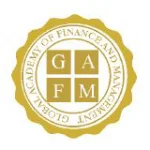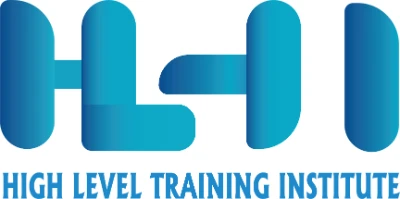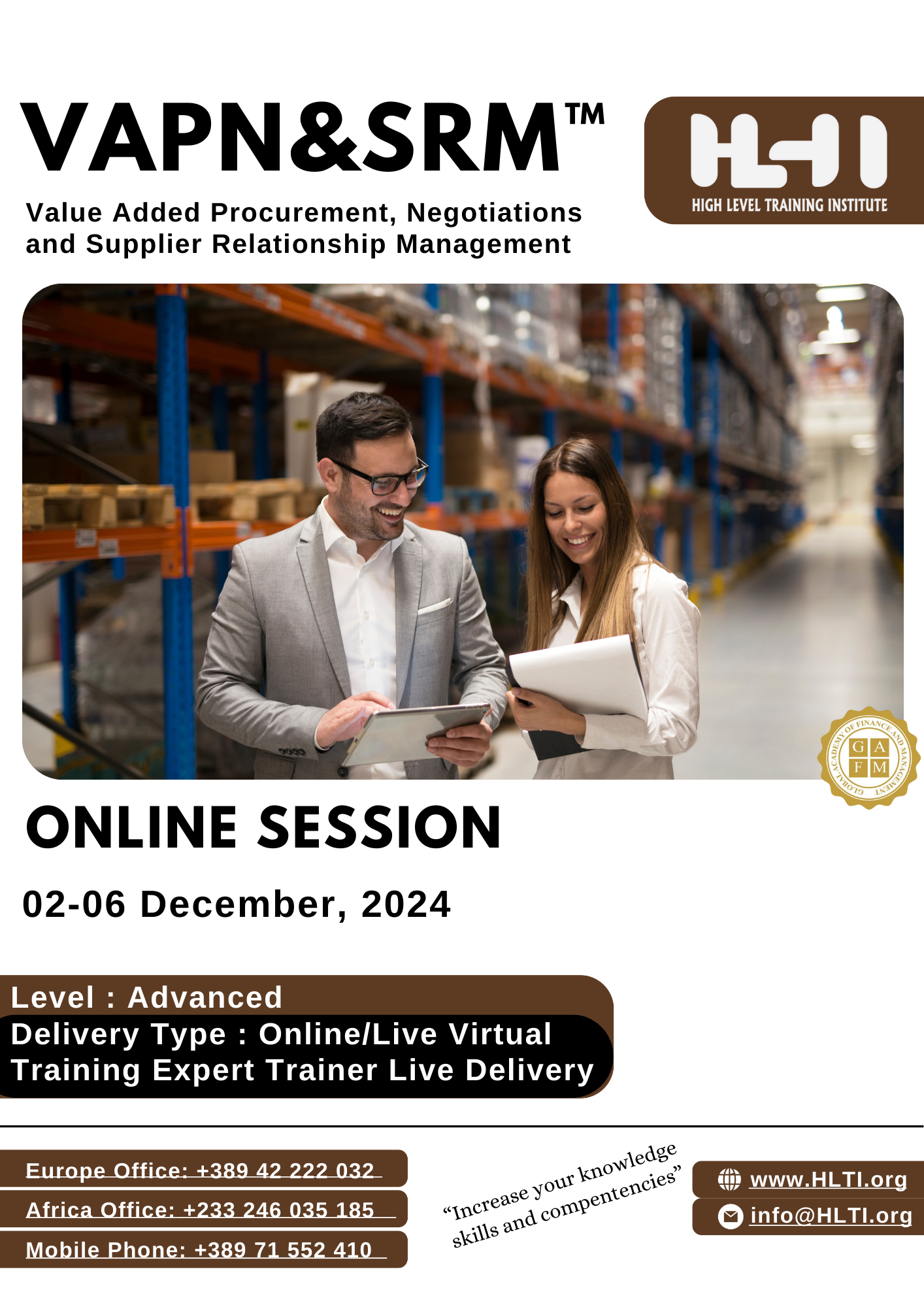VAPN & SRM Value Added Procurement, Negotiations & Supplier Relationship Management
Many organizations are becoming aware that the Procurement function is no longer just an operational cost center but one of strategic importance to their supply chain. According to ISM – The Institute for Supply Management, every 1% that you reduce costs equates to 5% in additional sales. Similarly, inefficiencies along the procurement process can cascade…
$2,390.00
Location: Live Virtual
Course Overview
Many organizations are becoming aware that the Procurement function is no longer just an operational cost center but one of strategic importance to their supply chain. According to ISM – The Institute for Supply Management, every 1% that you reduce costs equates to 5% in additional sales. Similarly, inefficiencies along the procurement process can cascade down the supply chain and adversely impact the bottom line.
As prices of commodities become more volatile, it is crucial for the Procurement professional to proactively assess and review how to plan and implement value-added procurement strategies, perform successful win-win negotiations without leaving money on the table, and develop effective and sustainable relationships
with key suppliers.
HLTI’s “Value Added Procurement, Negotiations and SRM” program explores the latest methodologies and practices such that your organization can move from simply a reactive, tactical (cost center) department to a value-add, strategic (profit center).
Dr. Shpend Imeri will give you the best of his experience in presenting this workshop, not only in the formal subjects to be presented but through networking and discussions, before, during and after the program. His presentation style is a blend of facilitation (where you and your colleagues will be drawn into the discussions), practical examples based on his twenty-plus years of experience with a blend of respectful humor.Benefits of Attending
• Create a Strategic Supply Plan and an Operations Plan to implement it
• Engage essential stakeholders through Early Supplier Involvement & Early Procurement Involvement
• Establish an Ethics Policy for Procurement based on the Institute for Supply Management and the United Nations
• Implement the 9-Step Acquisition Process and develop three key documents: the requisition, the solicitation and the purchase order
• Create a Strategic Negotiations plan and customize negotiation strategies based on Goods vs. Services
• Apply the Total Cost of Ownership model to Analyze Prices/Costs in Negotiations
• Move from simply boilerplate (reactive language) to proactive language with “teeth,” such as how to drive volume rebates and cost savings
• Understand and apply the underlying contract law, be it local, CISG or other
• Develop key Supply and Supplier Strategies based on the Risk/Benefit Matrix
• Assess your Supply Base using a Supplier Evaluation and Audit Tool used in a Fortune 500 company
Who Should Attend
Directors, Heads, Managers, Officers & other Senior Executives from:
• Supply Chain
• Procurement
• Purchasing
• Sourcing
• Logistics
• Inventory Management
• Risk Management
• Contracts
• Warehousing
• Finance
• Sales & Marketing
This program is suitable for professionals involved in supply chain risk management across all industries, especially:
• Oil & Gas/Petrochemicals/ Chemicals
• Food & Beverage
• Logistics & Transportation
• Healthcare & Pharmaceuticals
• Manufacturing
• Infrastructure & Construction
• FMCG
• Telecommunications
• Power & Utilities
• Consultancy Services
• Banking & Finance
• Retail
• Information Technology
• Mining
• Government
Certification Body

The GAFM was founded in 1996 by the original founders of the Graduate Leadership Society. The Founders of our Standards Board are CEOs, Executives, Professors, and industry experts from around the globe. We desire to raise education standards and ethics in the business and management industries.
The Standards Policy Board awards specialized board certifications, designations, and charters in the fields of: finance, accounting, management, and consulting fields to qualified professionals who have completed internationally recognized or accredited exams & education, government recognized degrees and documented management credentials and experience. Since 1996, the Academy has been promoting accredited graduate standards for certification in business, management, law, and finance. Since the inception with the founding of the Graduate Institute of Leadership in 1996, the Academy has been focused on quality assurance with accredited education, exams, assessment, education, ethics, and continuing education. Further, applicants must also have the necessary experience in practice, research or publications in their respective areas of expertise.


